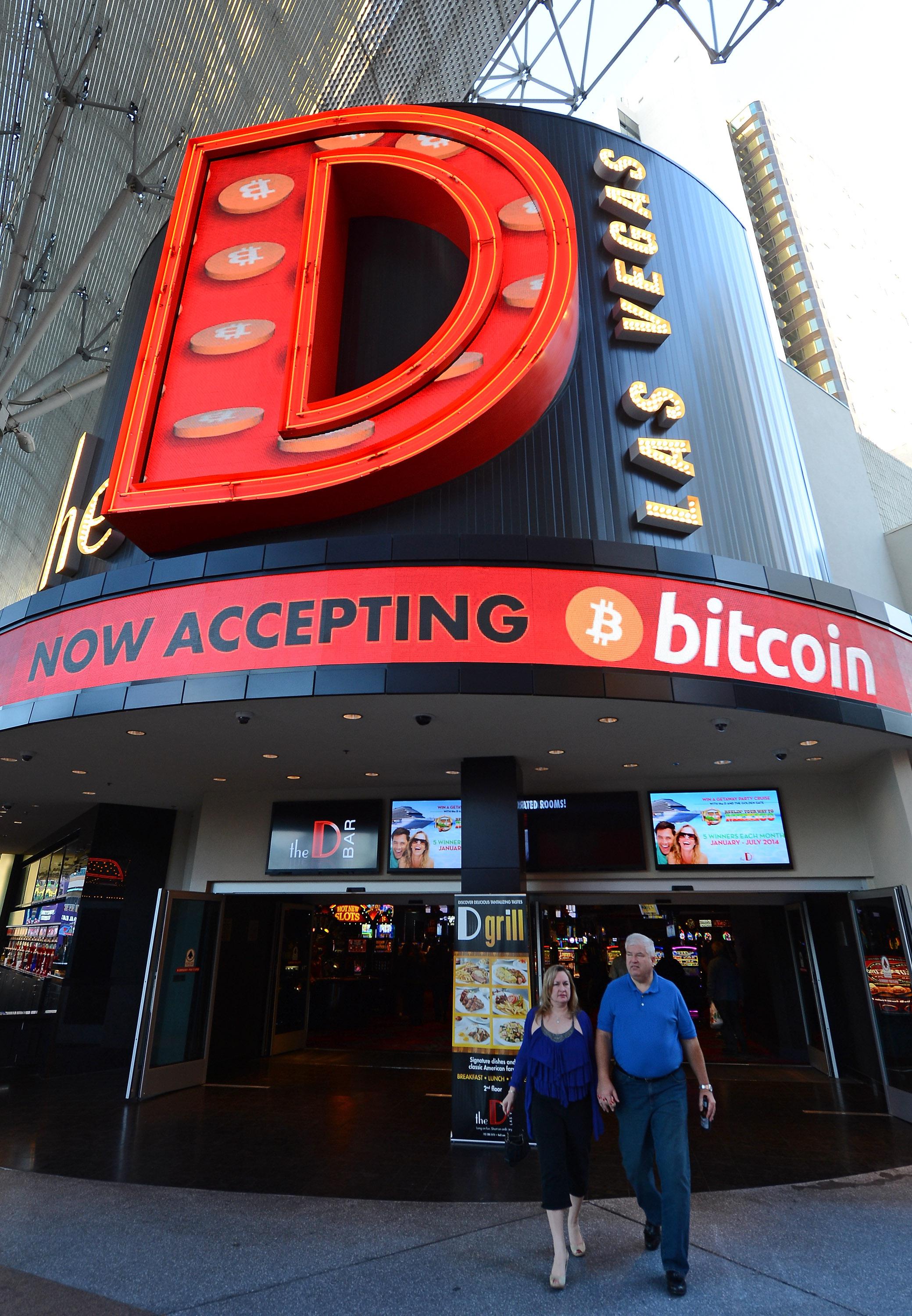On Feb. 11, Future Tense—a partnership of Slate, the New America Foundation, and Arizona State University—will host an event on cryptocurrencies at the New America office in Washington, D.C. For more information and to watch the webcast, visit the New America website.
For cryptocurrency doubters, it’s easy to be cynical about the almost daily announcement of a new retailer, basketball team, or police chief accepting bitcoin. Most appear to be nothing more than publicity stunts. But in the wake of the FBI’s dissolution of the illicit online marketplace the Silk Road, this new trend is going a long way toward institutionalizing bitcoin, even if they’re just in it for the headlines. Each time a respected retailer takes on the cryptocurrency, criminal associations sink further into the background (although not assisted by the recent arrest of Charles Shrem, the co-founder and CEO of BitInstant, for an alleged scheme to sell more than $1 million in bitcoin to Silk Road users). And linking up with the cryptocurrency gives certain companies a P.R. boost, helping them to appear innovative and risk-taking.
First it was the early adopters that announced they’d accept bitcoin payments: companies like OkCupid and Virgin Galactic that have made a habit of moon shots and digital agility. Over the past few months though, the cryptocurrency has landed some of its biggest fish so far, like the online retailers TigerDirect and Overstock. But for the vanguard, does the publicity still outweigh the sales?
Mike Maxim, chief technology officer of OkCupid, told me that when interest in bitcoin began to spike last year, the online dating site saw an opportunity to differentiate their product from other dating sites and announced in April 2013 that it would accept the cryptocurrency. The option hasn’t been overwhelmingly popular: Only about 1,000 people have taken them up on the offer so far, he said, as compared with more than 150,000 people overall who use OkCupid’s “A-List” extra options. Bitcoin payments are still just a small fraction of their overall revenue. The publicity has paid off, Maxim told me, but it was also just an easy way for people to pay for things online.
That’s because bitcoin’s real potential may be as a borderless payment platform akin to PayPal or Visa. After making a deal with the payment platform, Coinbase, to support bitcoin transactions, it took only two weeks and two people on OkCupid’s end to have the site set up to accept bitcoin payments, Maxim said.
It’s also clear that the Bitcoin crowd is a fanatical and organized fan base. One that is more than willing to spend their digital gold in Bitcoin-friendly venues.
When Overstock announced it was taking on Bitcoin in early 2014, also using Coinbase’s services, Judd Bagley, director of communications for Overstock, told me that he couldn’t have anticipated half the publicity it would generate. And not just in the press. Reddit’s subreddits lit up with support for Overstock, as users advised one another to check out prices on Overstock before buying from Amazon or Walmart as a show of support.
“After we made the announcement, there was a real surge of people on Facebook and Twitter praising Overstock and stating that they intended to support us,” Bagley told me. “There’s a pretty active, loyal Bitcoin community out there and they’re looking for places to spend it.”
Since early January, Overstock has passed the $500,000 mark in revenue from Bitcoin, he said, with more than 2,500 orders, and a large percentage of those orders came from valuable first-time customers. Bagley estimated that 1-2 percent of purchases on Overstock would be made in Bitcoin over the next year.
The other benefit is the relatively low transaction fee collected by platforms like Coinbase. While Bagley couldn’t disclose Overstock’s exact rate, he suggested that it’s better than that offered by Visa, which in general takes 2-3 percent. Coinbase charges OkCupid about 1 percent for Bitcoin transactions, according to Maxim.
None of this matters though, if retailers are afraid to use the cryptocurrency. Much of the criticism has arisen from its volatility: The value of a Bitcoin grew 5,000 percent in 2013. Yet representatives of Overstock and OkCupid told me that they bear little of the risk. After Coinbase sets an exchange rate, the Bitcoins are immediately liquidated for the two companies, with old-fashioned fiat currencies landing in their bank accounts once the sale goes through.
It’s Coinbase that shoulders the risk, much like businesses that deal with overseas currencies fluctuating with the dollar. But as Eric Posner, a professor at the University of Chicago law school, pointed out to Wired, there’s no supporting derivatives market to hedge Bitcoin bets like there is for the euro or the dollar.
Coinbase co-founder and CEO Brian Armstrong told me that they manage this problem by running a risk-hedging algorithm that keeps track of how many Bitcoins they owe and own at one time. This helps them to decide when to buy and sell, and when to adjust the exchange rate. And they think that retailer support will only grow. There are 22,000 merchants currently using Coinbase to facilitate Bitcoin transactions, Armstrong told me, and he says that they’re adding new merchants at a rate of around 31 percent per month.
Bitcoin seems to offer businesses legitimate benefits as a payment platform beyond coverage in the tech blogosphere, but it needs to solidify its head start now. The big guys like PayPal and Visa are reportedly watching closely and Amazon and Apple are also trying to get into the mobile payments game. It could be a short leap for them to create a corporate cryptocurrency of their own.
Until then, flight attendants buying $250,000 Virgin Galactic tickets to space in Bitcoin can’t help but dominate the headlines.
